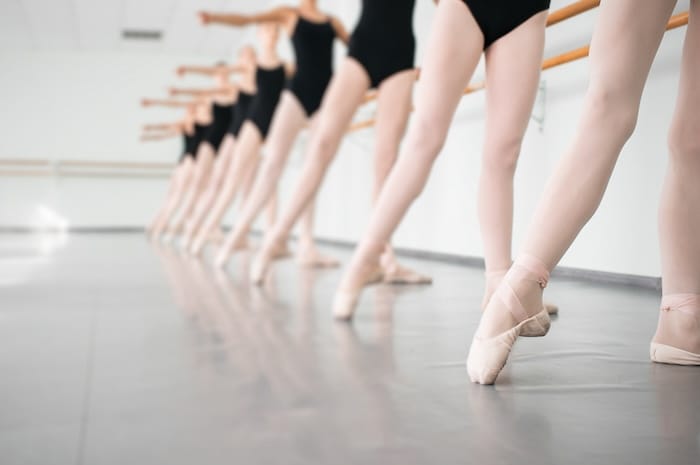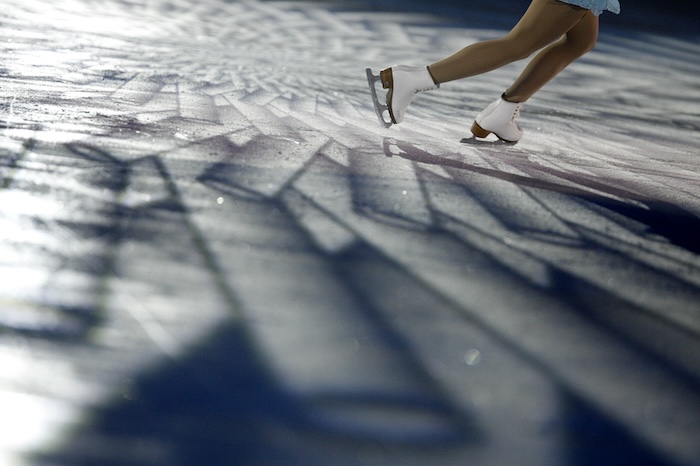- Calls to this hotline are currently being directed to Within Health, Fay or Eating Disorder Solutions
- Representatives are standing by 24/7 to help answer your questions
- All calls are confidential and HIPAA compliant
- There is no obligation or cost to call
- Eating Disorder Hope does not receive any commissions or fees dependent upon which provider you select
- Additional treatment providers are located on our directory or samhsa.gov
Risk Factors of Athletes Competing in “Lean” Sports
Many routes lead to eating disorders and disordered eating behaviors. It is for this reason that researchers and treatment professionals cannot pinpoint one specific cause. However, when considering the experience of athletes, it is clear that the ways in which exercise factors into “lean” sports is an important factor.

“Lean” Sports’ Impact on Body Image
It is no secret that athletes, whether by choice or necessity, can be hyper-focused on body weight, size, shape, makeup, etc. Often, ignoring this can mean the difference between success or failure in their sport of choice.
This creates a complicated relationship where the body is no longer only the vehicle for taking one through life but is the main tool necessary for earning one’s keep to survive in life.
While many of us could not get by in our daily lives without an optimally functioning body, this does not necessarily warrant that body have a particular makeup or appearance.
For athletes, there may be a sport-specific body-ideal that leads to sport-specific body dissatisfaction and disordered eating behaviors or “dysfunctional eating patterns such as fasting, dieting, vomiting, over-eating, binge eating and use of laxatives and/or diet pills [1].”
Engaging in these DE behaviors “can lead to eating disorders if left unaddressed and can cause an increased incidence of mood, anxiety, and substance abuse disorders [1].”
Many sport-specific expectations, such as body weight and size and beliefs on how this relates to success in the sport, can increase the likelihood of DE behaviors.

Leanness & Disordered Eating
Sports can be categorized as “lean” or “non-lean.” “Lean sports emphasize achieving and maintaining a lower body weight due to the belief that lower body weight improves performance [1].”
These often include aesthetic, weight-dependent, and endurance sports such as dancing, long-distance running, wrestling, diving, judo, swimming, etc. [1].
Lean sports may increase the risk for DE because athletes will engage in troubling and risky eating and exercise behaviors in order to achieve lower body weight.
In fact, individuals that participate in lean sports have been found to score higher on the Eating Attitudes Questionnaire, an assessment that measures likely eating disorder beliefs and behaviors [1].
In aesthetic lean sports, such as figure skating, gymnastics, or dance, appearance is a major fact in judging, leading to participants attempting to achieve a specific body type as it is believed to result in more favorable judging.
Weight-dependent sports divide participants based on their weight and their competitors, as in wrestling or judo. This leads to athletes “attempting to achieve lower body weight while maintaining muscle mass to gain a competitive advantage by competing in a lower weight class [1].”
Finally, endurance sports culture, such as swimming, diving, rowing, etc., often comes with the belief that “a lower body weight is typically associated with a higher level of competition [1].”
For those sports such as ball-game, power, or technical sports, body makeup is considered differently, if at all. In these, proper nourishment may be considered an asset to sports performance or simply not a factor in sports performance at all.
All of this must be considered for professionals treating athletes, as early identification of DE behaviors and beliefs can mean the difference between early intervention or development of an eating disorder.

Resources:
[1] Mancine, R.P., Gusfa, D.W., Moshrefi, A., Kennedy, S.F. (2020). Prevalence of disordered eating in athletes categorized by emphasis on leanness and activity type – a systematic review. Journal of Eating Disorders, 8:47.About the Author:

Margot Rittenhouse, MS, PLPC, NCC is a therapist who is passionate about providing mental health support to all in need and has worked with clients with substance abuse issues, eating disorders, domestic violence victims, and offenders, and severely mentally ill youth.
As a freelance writer for Eating Disorder Hope and Addiction Hope and a mentor with MentorConnect, Margot is a passionate eating disorder advocate, committed to de-stigmatizing these illnesses while showing support for those struggling through mentoring, writing, and volunteering. Margot has a Master’s of Science in Clinical Mental Health Counseling from Johns Hopkins University.
The opinions and views of our guest contributors are shared to provide a broad perspective on eating disorders. These are not necessarily the views of Eating Disorder Hope, but an effort to offer a discussion of various issues by different concerned individuals.
We at Eating Disorder Hope understand that eating disorders result from a combination of environmental and genetic factors. If you or a loved one are suffering from an eating disorder, please know that there is hope for you, and seek immediate professional help.
Published November 30, 2020, on EatingDisorderHope.com
Reviewed & Approved on November 30, 2020, by Jacquelyn Ekern MS, LPC

